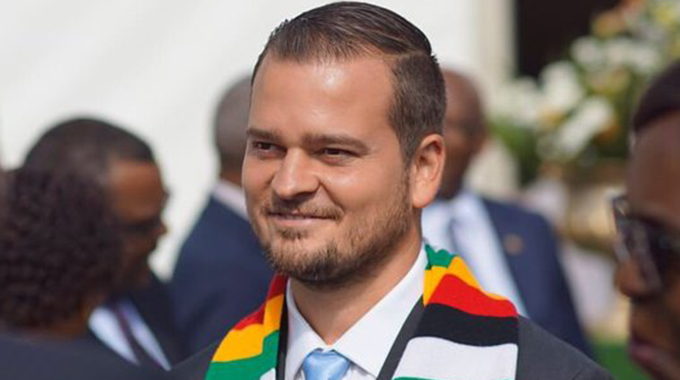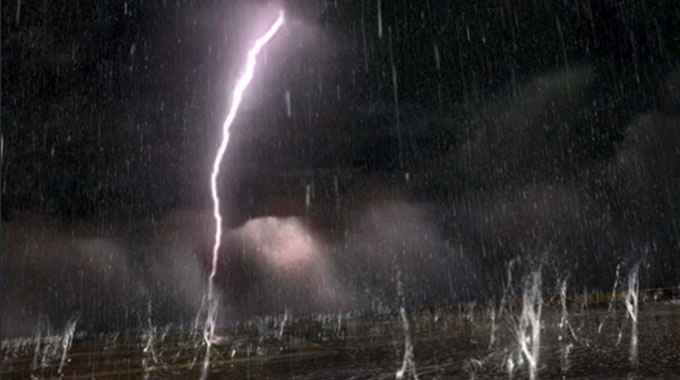Urgent action on climate change needed

Jeffrey Gogo Climate Story
Deputy Minister for Agriculture and Climate Mr Vangelis Haritatos has called for “urgent climate action in order to safeguard human life, livestock, wildlife and infrastructure,” as the global climate negotiations ended in Poland on Friday.
At press time, the talks had entered their final day without concrete agreement amid desperate pleas for progress.
The Katowice negotiations marked the deadline for parties to reach agreement on the modalities for implementation of the Paris Accord on climate change, agreed in the French capital by nearly 200 world governments three years earlier. In that sense, the talks were looked at as very important.
But by last Friday, reports say countries were still having a difficult time to agree on the“rulebook”, a complex set of rules and modalities, for the implementation of the Paris Agreement.
Nations were also under pressure to ramp up their pledges to cut emissions, as developing countries reiterated the urgency of adequate climate funding as promised by industrialised states.
Against this background, Minister Haritatos detailed the threats that Zimbabwe has already faced and those it risks suffering if parties failed to agree on the best way to implement strategies that curb global temperature rise “well below” 2°C in this century, as envisioned in the Paris Agreement.
“Zimbabwe as a developing country has not been spared by climate change and a good outcome will ensure that Zimbabwe benefits from the various (funding) mechanisms of the Paris agreement such as the Green climate Fund . . .” said Mr Haritatos, in a statement released to The Herald Business.
He said this will help to “address climate change adaptation and mitigation to avoid exhaustive use of the national budget addressing impacts caused by developed countries”.
Minister Haritatos berated developed countries for slowing progress on climate despite earlier undertakings, “both in the climate change convention and the Paris Agreement . . . to finance climate change adaptation in developing countries”.
Climate change is one of the most pressing challenges facing humanity today. Some of the biggest threats relate to water scarcity, reduced agricultural output, spread of disease like malaria, biodiversity loss and others.
In Zimbabwe, scientists say the country now experiences more hot and fewer cold days than before. Daytime temperatures have warmed by about 0,4°C from 1900 to 2000. The period from 1980 to-date has been the warmest since Zimbabwe started recording its temperature, they say. The timing and amount of rainfall received are becoming increasingly uncertain.
The last 30 years have shown a trend towards reduced rainfall or heavy rainfall and drought occurring back-to-back in the same season. The frequency and length of dry spells during the rainy season have increased while the frequency of rain days has been reducing.
Minister Haritatos said it was crucial for the climate negotiations to reach an agreement that works for all to avert the potential of a crisis.
“The impacts of climate change on Zimbabwe calls upon the need for urgent action in order to safeguard human life, livestock and wildlife as well as infrastructure,” he detailed.
While lethargy was creeping on at the global scale, Zimbabwe had started to make some progress towards fulfilling its own climate goals of avoiding emissions by about 33 percent by 2030 through increased investments in cleaner energies. Mr Haritatos said Government has to-date developed a National Climate Policy and the National Climate Change Response Strategy to guide climate change implementation. The recently concluded Climate Smart Agriculture Manual provides very useful guidelines for sustainable agricultural practices in Zimbabwe, he stated.
“Zimbabwe has and continues to address climate change challenges in order to uplift lives of its citizens through various interventions such as drought relief programmes, expanding the water holding capacity and availability through construction of more dams and boreholes . . . ” he said.
“These are funded by national budget or debt whereas climate change funding will be availed through the Paris Agreement.”
At Katowice, some of the expected key outcomes include, finalisation of the Paris Agreement rulebook to ensure that “we have realistic and agreed rule-based system to make the Paris Agreement a success. These rules will ensure predictable and measurable actions to ensure that the goals set by the Paris Agreement are achieved.”
It also includes rules relating to “ambitious emission reductions by developed countries who have accepted historical responsibilities of having caused the current climate change, and financial mobilisation for support to developing countries by developed countries . . .” said Minister Haritatos.
God is faithful.










Comments